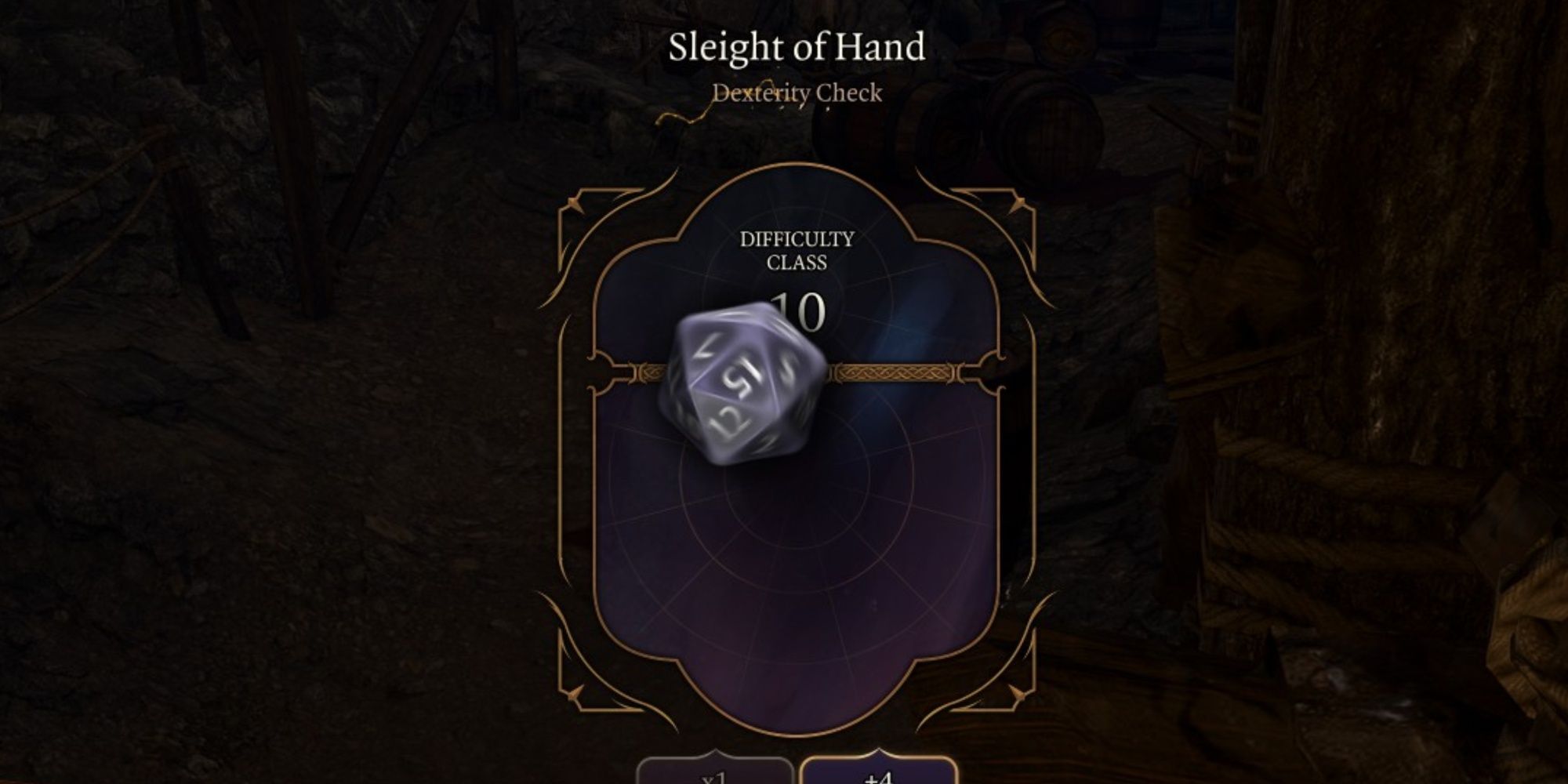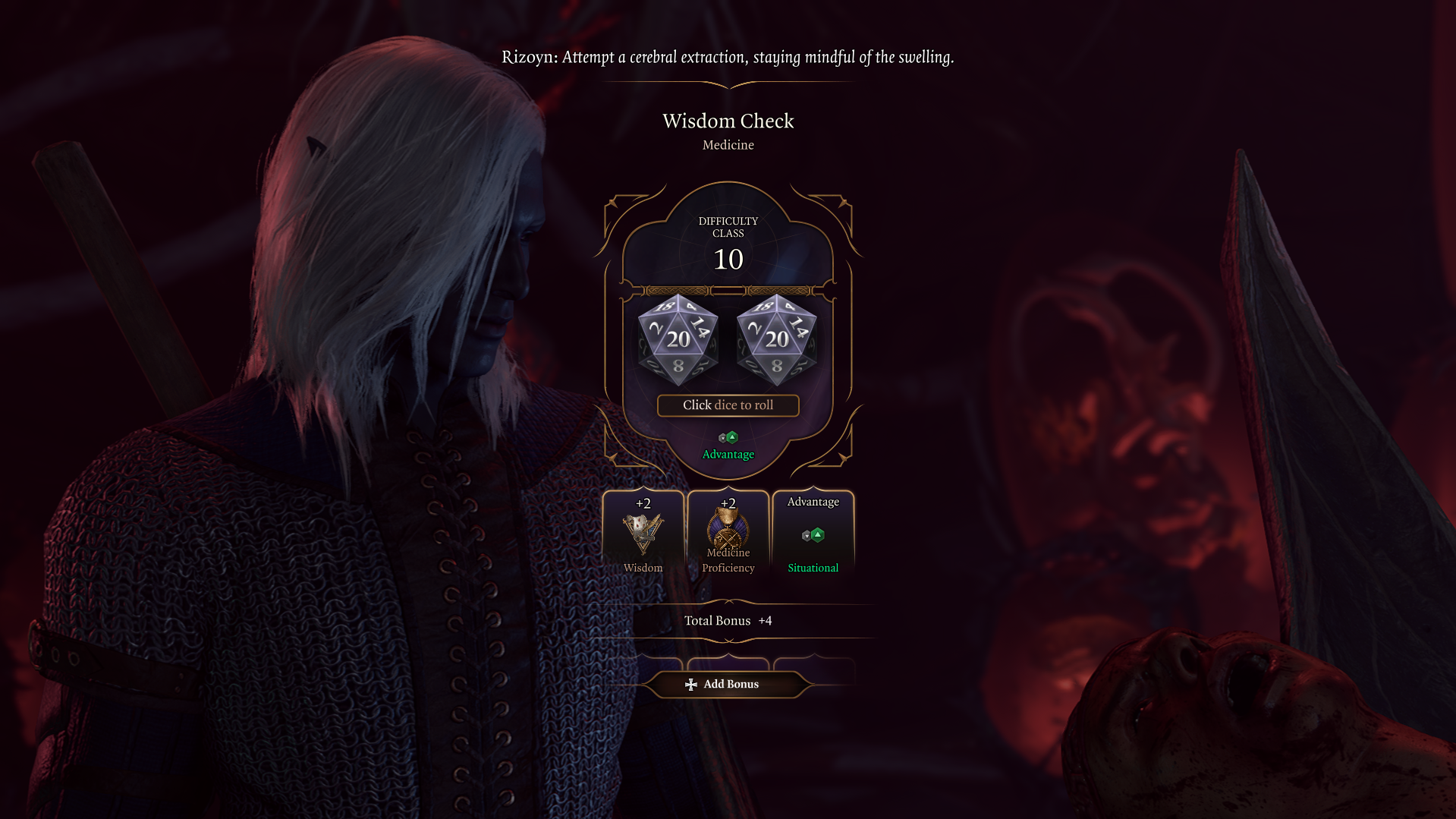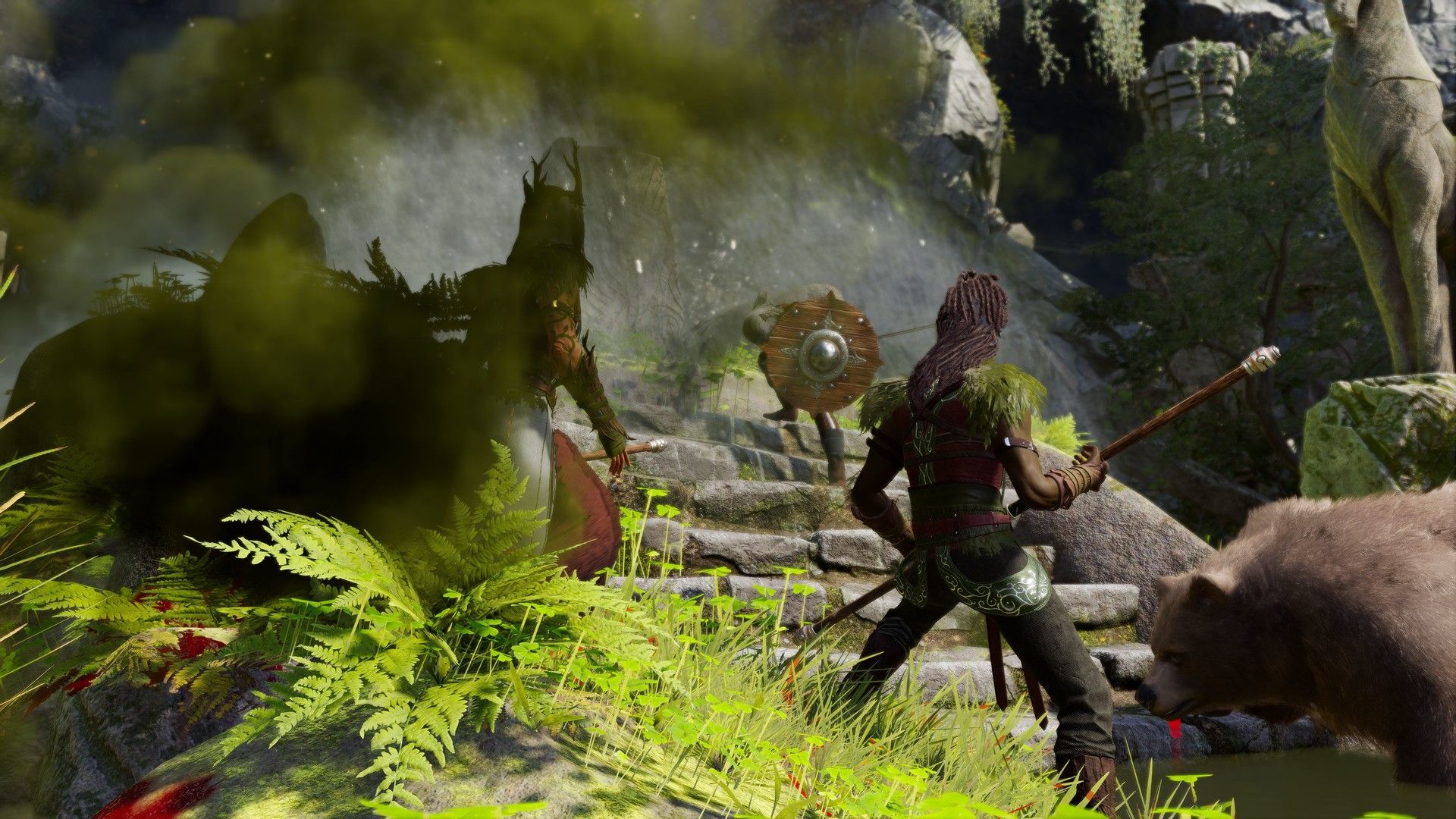Ah, the d20. This die is one of the most recognizable symbols in the world of gaming, especially when it comes to tabletop games and video games based on them. The d20 is a 20-sided die and is probably the most common of the dice that you'll see being rolled in Baldur's Gate 3.
So what's the significance? Well, the twenty sides of the die make it a great tool for applying the element of chance in a game, with each increment representing a five percent increase in chance. If you need to roll a ten or above, for example, you have a 50 percent chance of success. Or do you? It depends.
When The D20 Is Rolled
There are many times in the game that the d20 is rolled. You'll be most acquainted with skill checks, which will bring up the d20 in a neat little box in the center of the screen. Here, you'll be shown the Difficulty Class of the skill check that you're trying to pass, along with any bonuses, maluses, or other effects that may impact your roll.
Your roll may also be affected by Advantage or Disadvantage, which will have you rolling two dice at the same time. For more information about these terms, click here.
To pass a skill check, you simply need to roll a number that, after applying bonuses, is higher than the Difficulty Class.
The d20 is also used to make Attack Rolls. You can think of this as a test to see whether or not an attack hits a target. Your target will have an Armor Class, determined by their stats and any applicable armor being worn. You can think of Armor Class as an attack-centric Difficulty Class, and it is tested in the same way.
Critical Success And Critical Failure
There are two special cases when it comes to the result of a d20 roll - when you roll a '1' and when you roll a '20'. These will force either a Critical Miss or a Critical Success, respectively.
- A Critical Miss is an automatic failure. Even if your bonuses would push your overall result over the Difficulty Class of a skill check, you will fail the roll.
- A Critical Success is an automatic success.
- If this happens with an Attack Roll, you will get a Critical Hit, dealing more damage on average than a regular damage roll.
These critical rolls basically disregard the bonuses at work and give you a five percent chance of catastrophic failure and a five percent chance of boundless success whenever you roll a d20.



